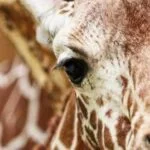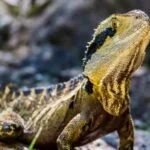Beyond Bananas & Bad Wolves: What Kids Taught Me About Animal Welfare
Meet Simon Marsh, a seasoned professional in the field of animal welfare, with a career spanning over 20 years in zoos, safari parks, sanctuaries, and rehabilitation projects worldwide. Simon’s dedication to changing perceptions and challenging traditional practices is evident in his work as Director at Wild Welfare. His belief in the power of education to reshape attitudes and practices is a key driving force behind the organisation’s core mission. In this captivating piece, Simon shares his unique experience of engaging with a group of lively six-year-olds about the technical subject of animal welfare and the unexpected outcomes of his encounter.
The team at Wild Welfare are used to challenging work environments, whether it is the weather or climate, cultural or language barriers, addressing sensitive topics, or when faced with sometimes upsetting situations, but I recently found myself completely outside of my comfort zone!
The team and I are very much used to working with adults in a structured and formal way, either delivering workshops or giving presentations, or attending conferences or meetings, but I’ve never faced a group of six- to eight-year-olds before. I was invited to talk to the Beaver Scout group (a part of the Scouting movement in the UK), about animal care. Now, although we try and make our training material interactive and interesting, they are very much geared towards professional adults in the zoo, aquarium, sanctuary, and rescue centre community, and cover the serious and technical subject of animal welfare. For this teaching challenge I had to be a lot more creative and think about how to make the concept of animal welfare digestible to such a young audience.
So, I created some games around resources, what animals need to make them happy and why they need it. I asked them to get into teams and pick a “head keeper” to lead the team and look after their teammates, making sure their welfare was being met. What I did not consider was how I was going to look after my own welfare, as trying to manage a large group of children was rather stressful and not something I was used to! I now have even more respect for the time and patience group leaders and teachers have and what a fantastic job they do.
“You can learn many things from children. How much patience you have, for instance.” – Franklin P. Jones
So, I started the activities and discussions, and I was amazed at how much these small people already knew about animals, the habitats they live in, their behaviours, and their diets. They immediately understood the difference between care and welfare, and at every challenge they knew which resource or habitat a different species needed to make them happy. They didn’t hesitate in describing that carnivores eat other animals, they knew that animals that live in trees want to live in trees, they understood that social animals are happy when they are living in groups, and they ran straight to the vet image when I said an animal is feeling unwell. As well as having a good understanding of animal care and welfare, including the different between the two, they also asked many astute questions. I was so impressed with their knowledge and the retention of information when we recapped what we had been learning during the session.
“Children are like wet cement: whatever falls on them makes an impression.” – Haim Ginott
And this got me thinking about all of our adult preconceptions surrounding what animals want and need and how we think about animals, whether domesticated, in captivity, or free ranging wild animals. When did we stop asking questions and challenging the way things are done. When did adults simply accept that certain things or practices always unfold in a particular way, allowing the straightforward connection between what an animal has evolved to do and what would bring it happiness to fade away? Generally, every generation becomes more accepting of a more diverse and open sociality and this includes our understanding and acceptance of animal sentience. But despite all the progress, there are certain beliefs which are hard to change. When the children talked about a primate diets, they went straight for “monkeys eat bananas”. And this is what we see in many facilities where primates and many other animals are fed a lot of inappropriate foods, like bananas. There are beliefs which seem to perpetuate and drive traditional practices, like monkeys eat bananas, carnivores are aggressive, like the big bad wolf, or “lazy so don’t need exercise”, such as lions, or bats are blind, and that certain species like reptiles don’t have emotions. Through education we can change these perceptions and also challenge traditional practices which get passed down through staff training or stories told to children.
“Our heritage and ideals, our code and standards – the things we live by and teach our children – are preserved or diminished by how freely we exchange ideas and feelings.” – Walt Disney
I know that Wild Welfare has made some great strides over the last 11 years to change these perceptions and practises by working with our partners and cementing animal welfare concepts into all our thinking, whether it is in a captive wild animal facility or in tourism and wildlife. I have faith that we will achieve our mission by working with adults, but we know it takes time. Seeing a glimpse of the next generations ideas and views on what it means for animals to experience good welfare give me hope that we will succeed is our mission as long as we encourage them to keep asking questions and challenging the norm.
“Children must be taught how to think, not what to think.” – Margaret Mead
The copyright of this content belongs to the author and any liability with regards to infringement of intellectual property rights remains with them.





